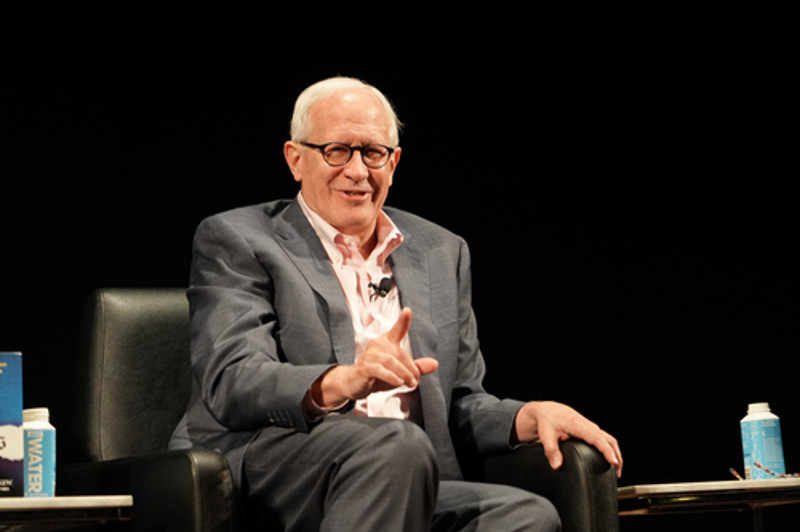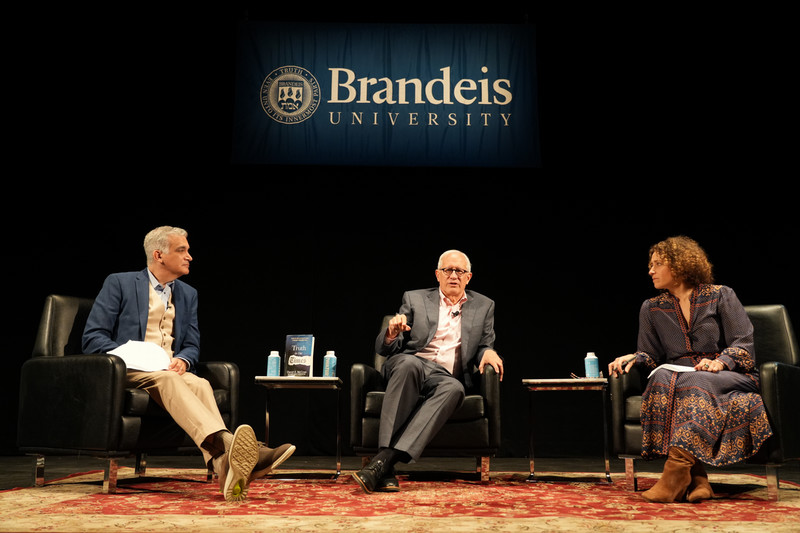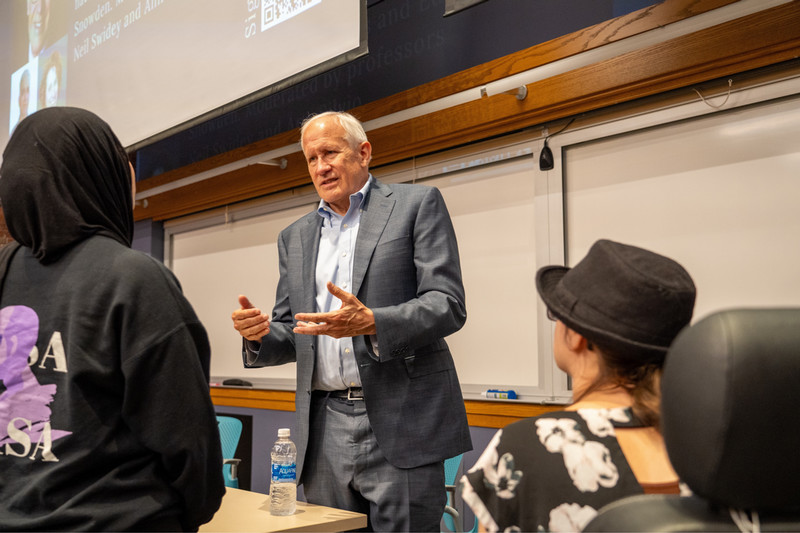On the Front Lines: Media, Law and Democracy with David McCraw

Close-up image of David McCraw speaking to a crowd of students, faculty and alumni during the Alumni College event. Photo by Khimaya Bagla.
"A press that is not believed has no power to move people to take action," David McCraw, Senior Vice President and Deputy General Counsel for The New York Times, told an audience of students, faculty and alumni at Brandeis' Alumni College on Sept. 27. Sitting down with Professors Neil Swidey and Ann Silvio, McCraw discussed his experiences as the Times' top newsroom lawyer, overseeing security at foreign bureaus, negotiating the release of journalists taken hostage, and defending the paper in court. Prior to this public event, McCraw also spoke at an off-the-record discussion with journalism students in Swidey's Long-form Journalism class on Sept. 26.
McCraw began by discussing the challenges of fighting for press freedom in a world where public trust in the media has declined, something he outlined in his 2019 book, Truth in Our Times: Inside the Fight for Press Freedom in the Age of Alternative Facts. He acknowledged that the press is imperfect, but argued that the public should respond to its flaws by paying more attention and encouraging it to do better, not by turning away. Comparing it to politics, McCraw said that everyone will one day wonder why their generation voted a certain way. "The reaction should not be, 'Well, let's take away the right to vote,'" he said. "Same way with the press."

McCraw also spoke about handling cases where reporters obtain sensitive or controversial information from anonymous sources. If the information is newsworthy and its accuracy can be confirmed, it should be published, McCraw explained. He cited the leaks provided by WikiLeaks and Edward Snowden as examples of crucial information the public needed to know, despite the controversies surrounding their release. In contrast, McCraw notes that the Times has currently chosen not to publish information from an Iranian hack on the current Trump campaign because the newsroom found nothing newsworthy in the leak.
McCraw has also played a pivotal role in dealings between the Times and the U.S. government. From 2020 to 2021, McCraw fought against government efforts to obtain information about Times journalists who reported on FBI investigations into Russian interference in the 2016 election. The Times was ultimately successful in protecting its journalists, and, as a result, Attorney General Merrick Garland issued an important policy that the government could no longer seek reporters' help in criminal investigations, solidifying the independence of the press.

McCraw's responsibilities extend far beyond the courtroom. He is also responsible for the safety and security of Times reporters abroad. Reflecting on hostage situations, McCraw noted that prior to the rise of social media, reporters were valued in dangerous situations because they were the only vessels through which people could share their stories. Now, however, journalists are no longer valued in the same way because social media has allowed anyone to self-report. Nevertheless, McCraw insisted that “we still have to tell the story. We still have to be witness wherever we can be witness.”
When asked about artificial intelligence, McCraw expressed concern over its rise. He acknowledged that AI may help reporters collect and synthesize information. However, he believes that human judgment is crucial to understanding the world. “AI is really good at reporting on the internet and reporters are good at reporting on the world,” he said. “That’s why [the reporters] are necessary.”
Story by Saaya Daga.